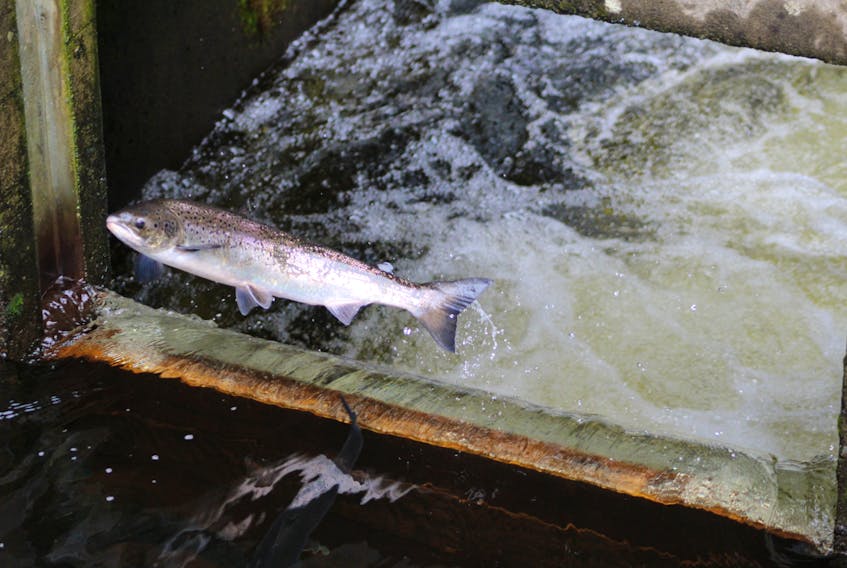GANDER, N.L. — The release of an interim management approach for Atlantic salmon in Newfoundland and Labrador has left Appleton angler Dennis Simms with more questions than answers.
A Department of Fisheries and Oceans (DFO) media statement, issued March 4, released details about an interim Atlantic salmon management approach for 2019, but a final report won’t be released until a later date.
While there’s an indication that retention angling will be permitted this year, Simms feels the wording is presented in a confusing manner, adding nothing should have been released until the management plan is final.
Currently, DFO is recommending a minimum retention limit of one salmon on all rivers in Newfoundland and Labrador. The department also suggests retention limits for some rivers may increase considering the final science advice. Just like last year, catch and release limits would be set at three salmon per day.
Simms said provisional regulations can be subject to change, and identifying the minimum retention for rivers doesn’t provide answers to angler concerns about overall limits.
In October, Simms attended a public DFO consultation about Atlantic salmon in Gander, which was also attended by The Central Voice. At that meeting, the majority of anglers wanted to see the return of a previous model that allowed for the retention of four salmon on large rivers, two salmon on small rivers, and a reduction in catch and release angling.
Simms doesn’t feel the views of anglers are reflected in the interim approach and it’s a rehash of previous work, which resulted in the 2018 angling season allowing for the retention of one salmon.
“We’re going the exact same route as last time,” he said.
When it comes to salmon, Calvin Francis, in Gander Bay, prides himself in always having something to say, but this had him lost for words.
Without a commitment to overall retention limits, he said an interim plan is hard to endorse or refute.
“We don’t know what to accept, because we just don’t know where it leaves us too. There’s so much unknown just yet,” he said.
Exploits River Management Association (ERMA) president Bruce Andrews felt the same way, and it’s something his organization will be looking into further.
ERMA’s position is a four-salmon retention limit with catch and release set at two per day, and viewing things from a tourism perspective, Andrews hopes the minimum doesn’t become the maximum for angler limits.
Under last year’s format, Andrews said it resulted in a decline in fishing activity.
While Andrews wasn’t sure how many people fish the river annually, he said key points of the season were indicative of a decline.
“During the salmon festival, there are anywhere between 30 to 40 boats that are fishing in an area we call the rapids; my neighbour was down there last year and counted three boats,” he said. “The numbers were down in Sanger Memorial RV Park as well. Anglers book time in our park and after one fish retention was issued we had a lot of cancellations.”
On a personal note, Andrews said he has also seen a 75 per cent decline in sales at his fly tying business.
“If it were to become only one fish again this year, it’s definitely not going to help tourism in this area at all,” he said.
RELATED
Tensions high at meeting with salmon fishermen in Grand Falls-Windsor









